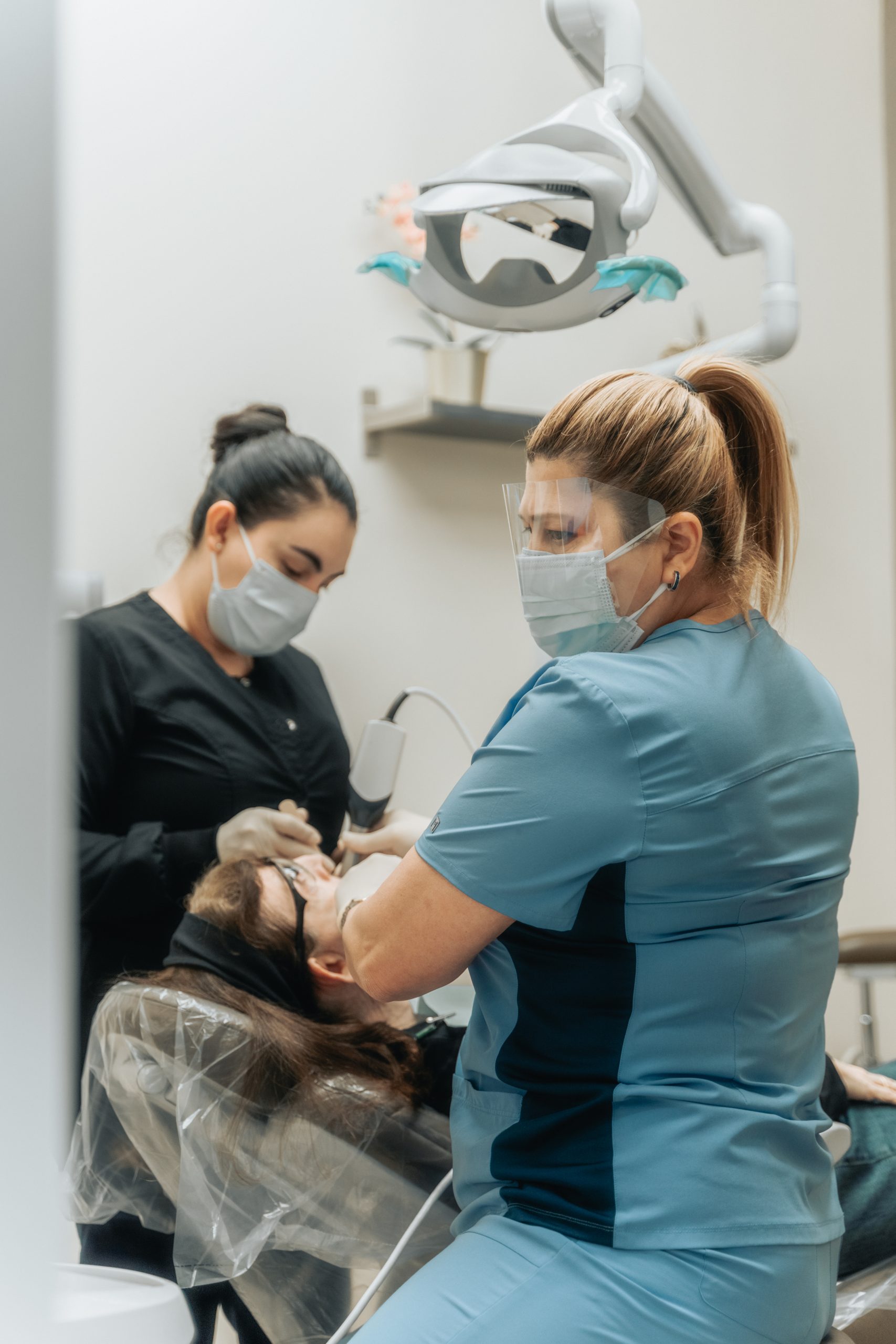The Advantages of Regular Appointments to a Dentist Eugene Oregon
The Advantages of Regular Appointments to a Dentist Eugene Oregon
Blog Article
A Guide to Typical Dental Conditions That Require a Dental practitioner's Care
Toothaches, for example, can be symptomatic of extreme issues such as cavities, fractured teeth, or abscesses, each requiring specific interventions like dental fillings or origin canals. Impacted wisdom teeth and jaw disorders can present significant discomfort and problems.
Toothaches
Toothaches are a common oral problem that can range from light discomfort to extreme discomfort, usually showing a hidden issue that needs professional attention. This discomfort can come from a range of resources, consisting of tooth decays, cracked or fractured teeth, and dental abscesses. Each of these problems poses substantial threats if left neglected, possibly causing extra extreme issues.
Oral cavities, additionally recognized as caries, are triggered by the build-up of plaque that erodes tooth enamel, leading to openings or pits in the influenced teeth. Abscesses are uncomfortable infections at the origin of a tooth or between a tooth and the periodontal, normally resulting from severe degeneration or without treatment cavities.
Efficient therapy of toothaches involves dealing with the root reason. This may include fillings for cavities, crowns for broken teeth, or root canals and prescription antibiotics for abscesses. Early intervention by a dental specialist can avoid additional degeneration and alleviate discomfort, making sure optimal oral wellness.
Periodontal Disease

The primary reason of gum tissue disease is microbial plaque, a sticky, anemic movie that continuously bases on teeth. Poor dental health, smoking, hereditary predisposition, and certain clinical conditions, such as diabetes mellitus, can exacerbate the threat of developing periodontal disease. Routine dental check-ups are crucial for early discovery and management of this condition.
Treatment for gum condition ranges from professional oral cleaning and scaling to advanced treatments like root planing and gum surgical procedure, relying on the extent. Maintaining good dental hygiene methods, consisting of brushing twice daily, flossing, and using a disinfectant mouth wash, can significantly reduce the danger of periodontal condition and promote healthier gums.
Cavities
Dental caries, also understood as oral cavities, are a common oral condition defined by the damage of tooth enamel because of acid-producing germs in the mouth. These germs flourish on sugars and starches from food and drinks, creating acids that progressively erode the enamel, leading to dental caries development.
Early-stage tooth cavities might not reveal symptoms, however as they proceed, they can create tooth pain, level of sensitivity to warm or cool, noticeable openings or pits in the teeth, and staining. If left unattended, dental caries can pass through much deeper layers of the tooth, potentially leading to serious discomfort, infection, and even tooth loss.
Stopping dental caries includes a mix of good oral health techniques and dietary routines. Normal brushing with fluoride toothpaste, flossing, and regular oral check-ups are essential. Dentists may also advise extra precautionary measures, such as fluoride therapies and dental sealants, to secure teeth from degeneration.
Therapy for tooth cavities depends upon their intensity. Small tooth cavities can be addressed with dental fillings, which bring back the tooth's structure. A lot more innovative cases might call for crowns or also root canal treatment if the decay has gotten to the tooth's pulp. Timely intervention by a dental professional is essential to protect against difficulties and preserve overall oral health and wellness.
Impacted Knowledge Teeth
Affected wisdom teeth are a widespread oral problem that occurs when the third molars, generally described as knowledge teeth, stop working to fully emerge or align effectively within the mouth. This problem often arises from inadequate space in the jaw or an unusual growth angle of the teeth. More Bonuses Impacted knowledge teeth can bring about a range of problems, including pain, damage, and infection to surrounding teeth.
When knowledge teeth end up being impacted, they are often partially erupted or remain entirely beneath the gum line. This partial eruption can produce a pathway for germs to go into the gum tissues, resulting in infections that manifest as swelling, discomfort, and even fever (dentist in eugene oregon). Furthermore, influenced knowledge teeth can put in pressure on surrounding teeth, potentially creating crowding or moving
A detailed oral assessment, usually entailing X-rays, is necessary for detecting influenced wisdom teeth. Routine dental check-ups are a good idea to keep track of the problem and keep oral health.
Jaw Problems
Conclusion

Dental cavities, also known as decays, are caused by the build-up of plaque that erodes tooth enamel, leading to openings or pits in the influenced teeth. Abscesses are uncomfortable infections at the origin of a tooth or in between a tooth and the gum tissue, normally resulting from severe degeneration or without treatment tooth cavities.
Influenced Look At This wisdom teeth are a prevalent dental concern that occurs when the third molars, typically referred to as knowledge teeth, stop working to totally arise or straighten properly within the mouth. Affected knowledge teeth can lead to a selection of complications, including discomfort, damage, and infection to adjacent teeth.
Additionally, affected wisdom teeth can put in pressure on neighboring teeth, potentially creating crowding or moving.
Report this page